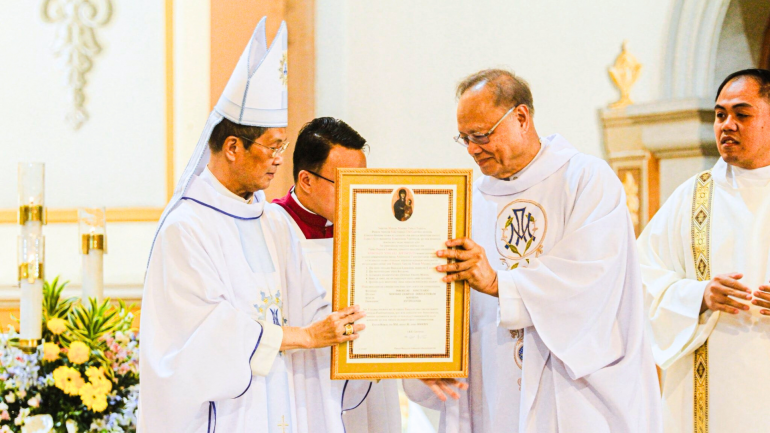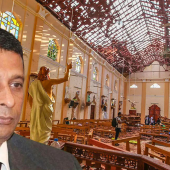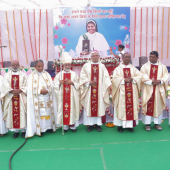Filipino Prelate Calls on Faithful to Emulate Mary’s Obedience

A Filipino prelate reminded the faithful that the obedience of the Blessed Virgin Mary is not a sign of weakness but “wisdom in action.”
Antipolo Bishop Ruperto Santos said that Mary’s acceptance of God’s authority is worth emulating because it transformed her into the first disciple of Christ.
“Obedience is fulfilling the will of God, not our own desires or preferences. Obedience is service; we carry out what God wants. We obey without grumbling, resistance, or resentment,” he said.
The bishop delivered the homily during the solemn declaration of the special bond of spiritual affinity of the Diocesan Shrine and Parish of Our Lady of the Abandoned in Marikina City with the Papal Basilica of Saint Mary Major in Rome on September 8.
Bishop Santos urged the faithful to celebrate this blessing from the Vatican by following Mary’s example of self-giving.
“Mary obeyed fully, completely, and wholeheartedly… without conditions or asking for favors. She answered ‘yes’ to God with all her heart and soul,” he said.
The prelate further underlined how Mary did not raise her voice in the face of God’s divine mystery in her life as the Mother of God.
“In a world that often equates volume with value, Mary’s silence speaks louder than any shout… She did not argue – not because she lacked understanding, but because she trusted,” he said.
Through this spiritual bond of affinity, the same plenary indulgence obtained at the Basilica of Saint Mary Major in Rome can also be received in the Marikina church according to the requirements of Canon Law.
Founded by the Augustinians in 1572, the parish is home to the canonically crowned image of Our Lady of the Abandoned, a recognition granted by Pope Benedict XVI in 2005.
On October 23, the parish will hold another solemn declaration establishing a spiritual bond of affinity, this time with the Marian shrine in Valencia, Spain, where the devotion to Our Lady of the Abandoned began in the 15th century.
Radio Veritas Asia (RVA), a media platform of the Catholic Church, aims to share Christ. RVA started in 1969 as a continental Catholic radio station to serve Asian countries in their respective local language, thus earning the tag “the Voice of Asian Christianity.” Responding to the emerging context, RVA embraced media platforms to connect with the global Asian audience via its 21 language websites and various social media platforms.














